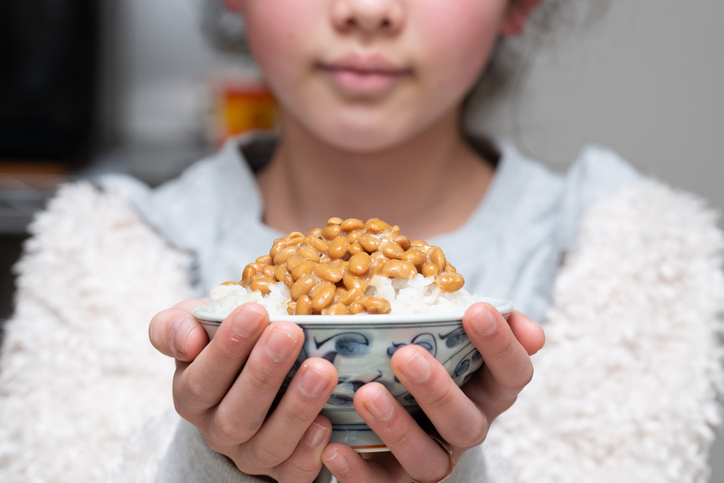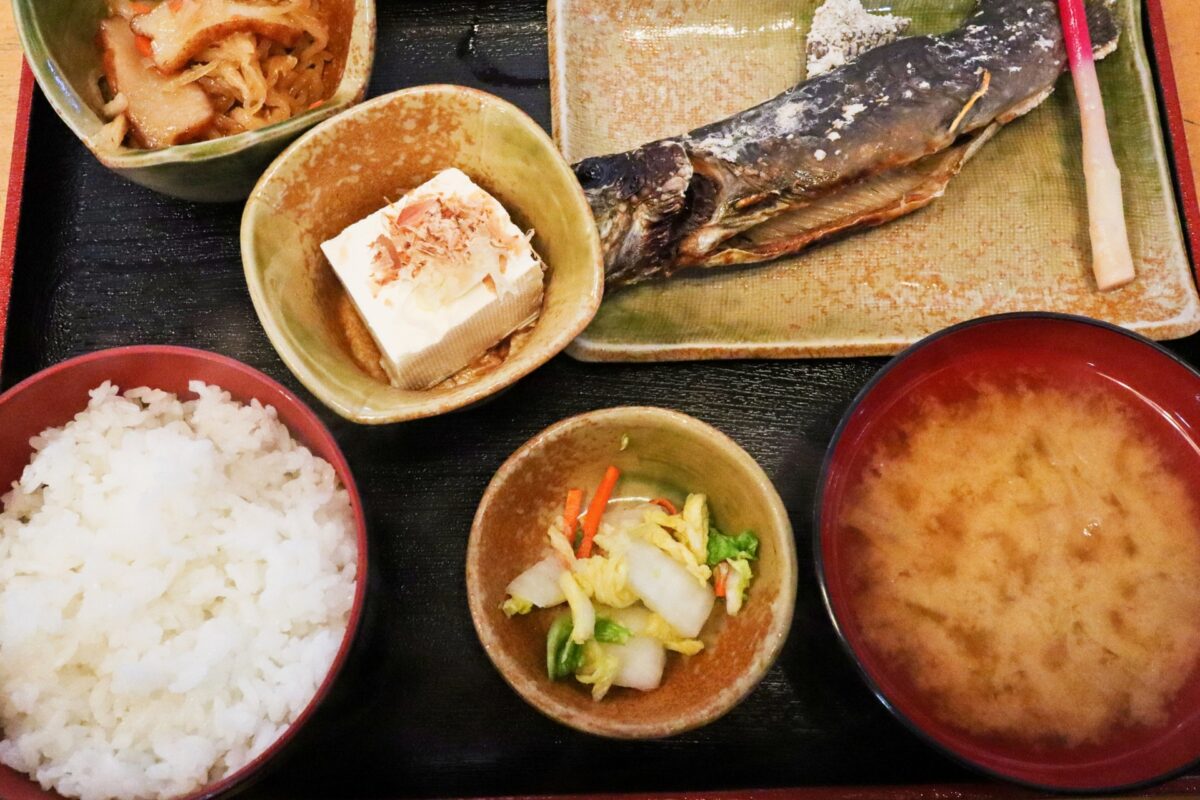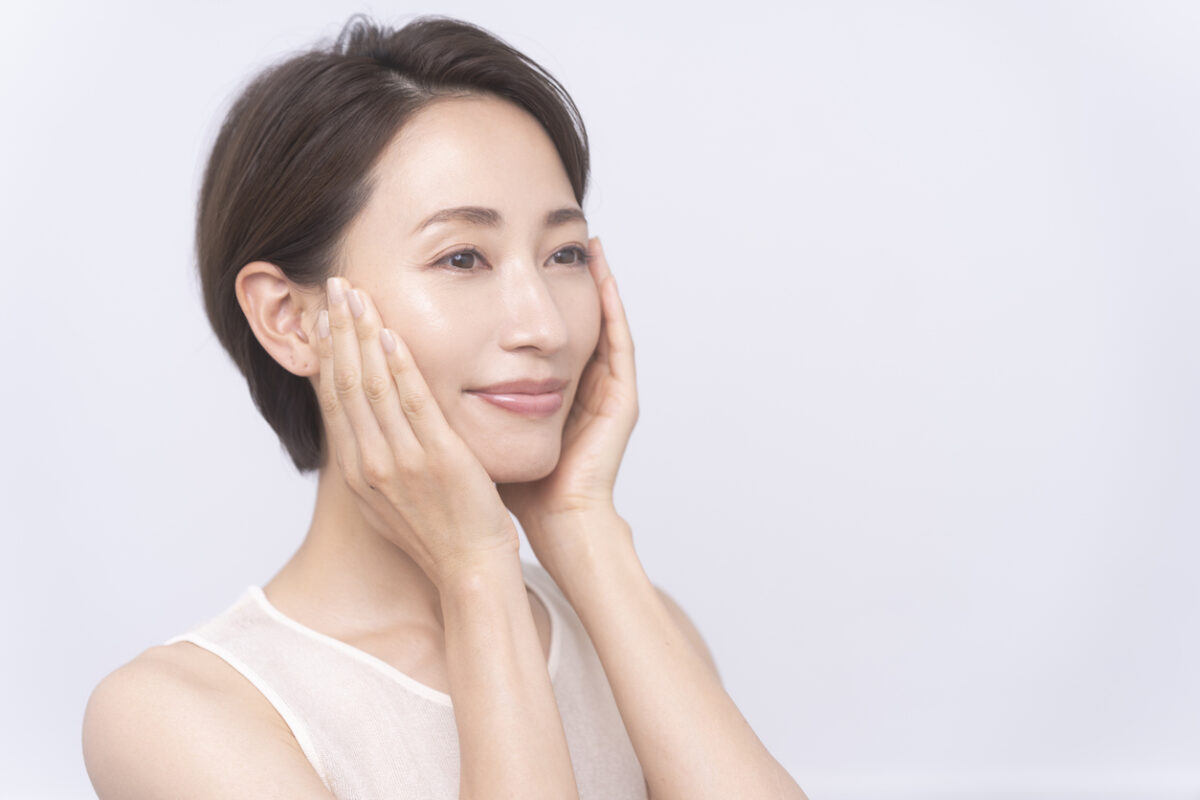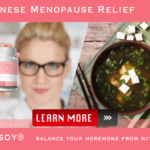Introduction
If you recently watched the streaming series Shōgun (2024 TV series) (or its earlier adaptations) you may have noticed how the story of Tokugawa Ieyasu and his era evokes traditional Japanese culture in vivid detail. The presentation of everyday rituals—including meals and fermented foods—offers a window into how the Japanese historically valued ingredients like natto.
That scene where characters share a sticky bowl of natto may feel distant to many in the U.S., but the tradition has deep roots and potent health benefits. In this article we’ll explore what natto is, why it matters for gut health and bone and heart support, how you can make it work in your Western diet—even if you’re not quite ready for the full experience—and mention a gentle way to complement your diet with Juveriente.

What Is Natto?
The Basics
Natto is a traditional Japanese dish made from soybeans fermented with the bacterium Bacillus subtilis. It yields a distinctive sticky, stringy texture and strong aroma.
Why Japan Loves It
Because natto has been part of Japanese breakfasts for centuries, it embodies the concept of shoku-iku (food education) and the interplay of fermented foods in daily life.
Quick Nutrition Snapshot
Natto offers high-quality plant protein, fiber, probiotics, the enzyme nattokinase, and vitamin K2—a nutrient relatively rare in plant foods. These nutrients support multiple aspects of health.
Health Benefits of Natto
Gut Health & Digestion
Because natto is fermented, it contains live beneficial bacteria and supports a healthy gut microbiome. It also provides fiber to aid digestion and regularity.
According to nutrition analyses, it can support digestive comfort and help keep things moving.
Bone & Cardiovascular Support
The vitamin K2 in natto helps the body direct calcium into bones rather than into soft tissues—a key for women over 50 concerned with bone density.
Meanwhile, the enzyme nattokinase has been studied for its potential in supporting healthy blood flow and cardiovascular function.
Additional Perks
Some research suggests natto’s fermentation process generates antioxidants, may help regulate cholesterol, and contributes to immune system support.
How to Eat Natto (and Make It More Palatable)
Traditional Japanese Method
-
Stir the natto thoroughly until it becomes stringy and sticky—that helps bring out its full character.
-
Add the soy-based sauce (tare) and a bit of Japanese mustard (karashi).
-
Serve it over hot steamed rice and top with chopped green onions.
Western-Friendly Creative Uses
-
Try natto on whole-grain toast with avocado and a drizzle of soy sauce.
-
Mix natto into scrambled eggs, salads, or even pasta for a fusion twist.
Tips If Texture or Aroma Feels Challenging
If you find the texture or smell difficult:
-
Start with a small amount (say 1 tablespoon) mixed into something familiar, like plain yogurt or scrambled eggs.
-
Combine natto with bold flavors—garlic, kimchi, strong cheese—to offset the unique characteristics.
-
A quick microwave (just a few seconds) may soften the aroma and improve acceptance.
Replacement Option If Natto Is Too Much
If you’re truly not ready for the natto experience yet, that’s totally fine: choose another fermented soy product with milder flavor—like tempeh, miso soup, or a soy-based isoflavone supplement from Juveriente. That way you keep aligned with fermented-soy benefits while you build up toward natto.
How Juveriente Fits Into This
Juveriente offers plant-based products designed especially for women over 50 who care about gut health, hormonal balance, and bone strength. Incorporating natto (or your starter alternative) into your diet pairs naturally with Juveriente’s purpose.
In other words: natto (or a gentler soy-ferment step) + Juveriente’s targeted support = a powerful combo for mid-life well-being.
Getting Started: Practical Tips for Busy Women
-
Purchase a small pack of natto from your Asian market or an online retailer.
-
Keep steamed rice ready or use whole-grain toast as a quick base.
-
Set aside one morning this week to prepare natto the way above or try the toast version.
-
Pair the meal with a Juveriente product as part of your morning routine.
-
After two weeks, check in: How’s your digestion? Energy? Mood?
-
If your palate isn’t ready for full natto yet, use the replacement route above—and revisit natto later.
Wrap-Up
If you’re looking for a unique, nutrient-dense addition to your diet that has roots in Japanese food culture, natto is well worth exploring. Its benefits for gut health, bones, and heart make it stand out. And for busy American women who may not fall in love with its texture or aroma right away, mixing it into familiar foods or opting for a gentler alternative while leveraging Juveriente’s product range gives you flexibility.
Take your time, stay curious—and let natto become one of your secret health allies.
A Natural Supplement from Fermented Soybean Germ
Numerous isoflavone supplements are available, but most are from non-fermented soybeans. Non-fermented isoflavone is bound with a big molecular sugar, and you can’t absorb it as it is. Digestion resolves it to an absorbable size, but it takes time, and most nutrients are not absorbed. Fermentation works the same as digestion, and you can absorb isoflavone from fermented soy as it is.
Juveriente®’s Effisoy, launched in 2016, based on fermented soy bean germ extract has been loved as a natural menopause relief since its launching in 2016.
Its primary function is to boost the weakened synthesis of a hormone precursor, DHEA. It’s safe as it only heals the natural synthesis function. The hormone boost doesn’t provide the only relief from menopausal symptoms. But, it also supports various aging and hormonal imbalance issues and including insomnia.
Here are some of the real product reviews in our Amazon shop.
“Restful sleep finally!!”, “I Am Now Free of Hot Flashes!!”, “Lifesaver”













































